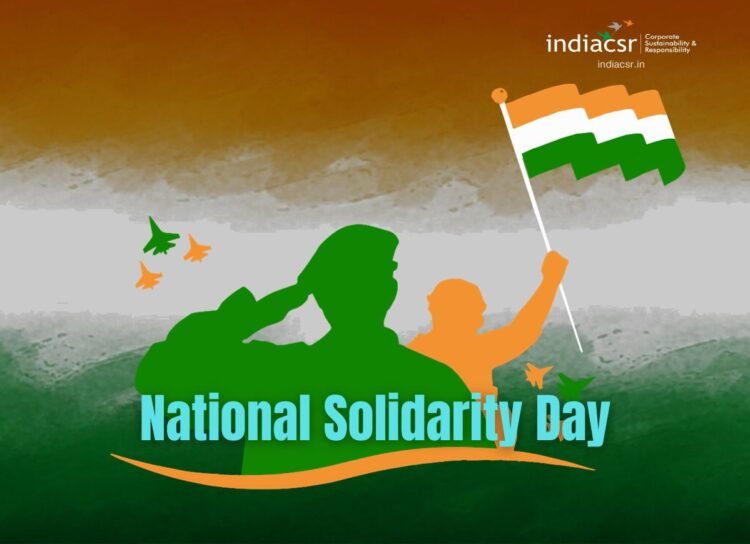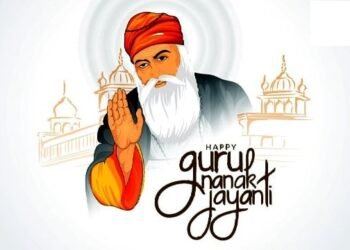National Solidarity Day involves various events such as flag hoisting, prayers, cultural programs, rallies, and distribution of sweets and gifts to express gratitude and appreciation to the armed forces.
National Solidarity Day is a day of honour and gratitude for the Indian Armed Forces. It is observed on October 20 every year to commemorate the bravery and sacrifice of the soldiers who fought in the Sino-Indian War of 1962. It also serves as a reminder of the importance of unity and integrity in defending the nation’s sovereignty and security.
Date of National Solidarity Day
National Solidarity Day in India is celebrated on October 20th every year. It commemorates the victory of the Indian Armed Forces over the Chinese Army in the 1962 Indo-China War.
History of National Solidarity Day
The origin of National Solidarity Day can be traced back to the Indo-China War of 1962, which was a border conflict between India and China that lasted from October 20 to November 21. China launched a surprise attack on India’s northeastern frontier, claiming disputed territories in Ladakh and Arunachal Pradesh. India’s military personnel faced many challenges such as harsh terrain, adverse weather, and logistical difficulties, but they fought valiantly and resiliently to protect the nation’s borders. Despite their courage and dedication, India suffered a humiliating defeat and lost thousands of lives in the war.
In 1966, a committee was set up under the leadership of Prime Minister Indira Gandhi to decide on a suitable way to honour the martyrs of the war and to instill a sense of patriotism and solidarity among the citizens. The committee decided to designate October 20 as National Solidarity Day, a day to pay tribute to the armed forces and to reaffirm the commitment to uphold the nation’s principles and values.
Significance of National Solidarity Day
National Solidarity Day is a significant day for India as it marks a pivotal moment in its history and fosters a spirit of togetherness and loyalty among its people. On this day, various events are organized across the country to express gratitude and appreciation to the armed forces for their service and sacrifice. Some of the events include:
- Flag hoisting ceremonies at public places and institutions
- Prayers and homage at war memorials and martyrs’ graves
- Cultural programs and patriotic songs at schools and colleges
- Rallies and marches to spread awareness and solidarity
- Distribution of sweets and gifts to soldiers and their families
- Lighting of candles and lamps at homes and streets
National Solidarity Day also reminds all Indians of the need to stand united and strong in the face of any adversity or threat. It encourages them to respect the diversity and harmony of the nation and to contribute to its progress and development.
Celebrations of National Solidarity Day
National Solidarity Day is celebrated in India with a number of events and activities. These include:
- Wreath-laying ceremonies at war memorials to pay homage to the soldiers who died in the 1962 Indo-China War.
- Cultural events such as patriotic songs, dances, and plays to promote national unity and solidarity.
- Educational programs to teach students about the 1962 Indo-China War and the importance of national solidarity.
- Social service activities such as blood donation camps and donation drives to help the needy and underprivileged.
Important Facts about National Solidarity Day
Here are some interesting facts about National Solidarity Day that you may not know:
- The Sino-Indian War of 1962 was also known as the Himalayan War or the Chinese Invasion of India.
- The war was triggered by China’s claim over Aksai Chin, a region in Ladakh that India considered as part of its territory.
- The war ended with a unilateral ceasefire declared by China on November 21, 1962. China withdrew its troops from Arunachal Pradesh but retained control over Aksai Chin.
- India lost about 3,000 soldiers in the war, while China lost about 700.
- The war resulted in a diplomatic rift between India and China that lasted for decades. The two countries resumed formal relations only in 1976.
- The war also led to India’s reorientation of its foreign policy and defence strategy. India sought closer ties with the Soviet Union and other countries, and strengthened its military capabilities.
- The war inspired many patriotic songs, poems, films, and books in India. Some of the famous ones are Ae Mere Watan Ke Logon by Lata Mangeshkar, Haqeeqat by Chetan Anand, Himalay Ki God Mein by Vijay Bhatt, and The Rediffusion Hour by All India Radio.






















